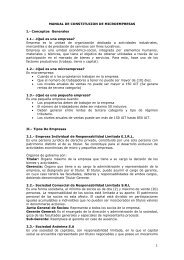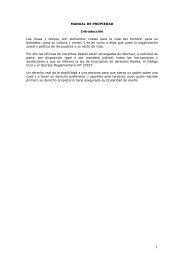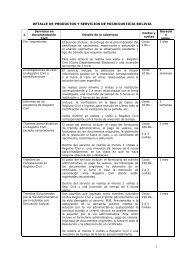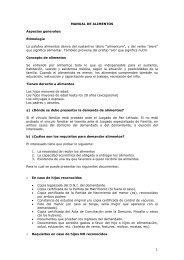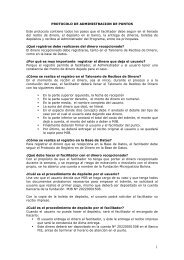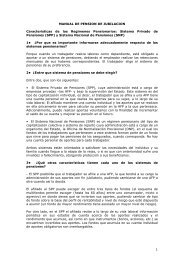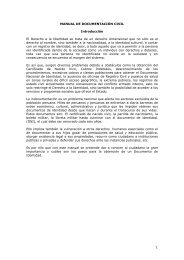ICISS report - International Coalition for the Responsibility to Protect
ICISS report - International Coalition for the Responsibility to Protect
ICISS report - International Coalition for the Responsibility to Protect
You also want an ePaper? Increase the reach of your titles
YUMPU automatically turns print PDFs into web optimized ePapers that Google loves.
The <strong>Responsibility</strong> <strong>to</strong> <strong>Protect</strong> 59<br />
7.10 At times, <strong>the</strong> weakness of <strong>the</strong> coalition and <strong>the</strong> failure <strong>to</strong> establish authority and <strong>to</strong><br />
provide a secure environment have also led <strong>to</strong> <strong>the</strong> institution of parallel en<strong>for</strong>cement<br />
missions in <strong>the</strong> middle of a process – such as <strong>the</strong> arrival of <strong>the</strong> Unified Task Force (UNITAF)<br />
amidst <strong>the</strong> first UN Operation in Somalia (UNOSOM I), NATO’s insertion of a rapidreaction<br />
and bombing capacity amidst <strong>the</strong> UN <strong>Protect</strong>ion Force in <strong>the</strong> Former Yugoslavia<br />
(UNPROFOR), and more recently <strong>the</strong> British Army in Sierra Leone.<br />
7.11 Effective coalition building means creating and maintaining a common political<br />
resolve, and working out a common military approach. En<strong>for</strong>cement actions conducted by<br />
coalitions of <strong>the</strong> willing have <strong>to</strong> take in<strong>to</strong> account <strong>the</strong> politics of member states and <strong>the</strong><br />
impact of <strong>the</strong> media. Politics always intrudes on military ef<strong>for</strong>ts, and this situation is intensified<br />
when <strong>the</strong> military operation is not a classic war making ef<strong>for</strong>t. The intervention by<br />
NATO in Kosovo demonstrated that <strong>the</strong> pace and intensity of military operations may be<br />
seriously affected by <strong>the</strong> lowest common political denomina<strong>to</strong>r among member states.<br />
Moreover, coalition warfare entails o<strong>the</strong>r restrictions on military conduct and political<br />
decision making that results from differing national legislation.<br />
7.12 Even where <strong>the</strong>re is a common political resolve among coalition partners, it is still<br />
necessary <strong>for</strong> <strong>the</strong>re <strong>to</strong> be a common military approach. A situation in which different<br />
militaries acted independently and without coordination would be one extreme, and <strong>the</strong><br />
result would likely be failure. But even among well disciplined coalitions, important differences<br />
may arise that can have significant operational consequences. Differences have<br />
emerged in <strong>the</strong> past, <strong>for</strong> example, on whe<strong>the</strong>r some military options (<strong>for</strong> instance, <strong>the</strong> use<br />
of ground troops, <strong>to</strong> take but one well known example) should publicly be ruled out or not.<br />
Ruling in or out particular military options can have important political ramifications as<br />
well, and in some cases may even streng<strong>the</strong>n <strong>the</strong> resolve of <strong>the</strong> targeted state <strong>to</strong> resist.<br />
Objectives<br />
7.13 The ef<strong>for</strong>t <strong>to</strong> build broad support <strong>for</strong> an intervention action often confronts <strong>the</strong><br />
problem that coalition partners may well have different ideas about <strong>the</strong> objectives <strong>to</strong> be<br />
achieved through <strong>the</strong> intervention action. Ideally, <strong>the</strong> process of making a decision <strong>to</strong><br />
intervene, <strong>the</strong> <strong>for</strong>mulation of <strong>the</strong> mandate <strong>for</strong> <strong>the</strong> intervening agent (or combination of<br />
agents), and <strong>the</strong> allocation of structures and means <strong>for</strong> implementation should be related.<br />
But harmonizing <strong>the</strong> views and interests of differing states in each regard is often a<br />
protracted and complex undertaking. Moreover, multilateral decision making bodies<br />
require consensus <strong>to</strong> succeed, and vagueness and incrementalism, ra<strong>the</strong>r than specificity, are<br />
inevitable outcomes of multilateral deliberations: <strong>the</strong> limits and boundaries of intervention<br />
may become significantly obscured in order <strong>to</strong> secure agreement about an authorization.<br />
7.14 Differences in objectives often emerge in discussions over <strong>the</strong> “exit strategy,” with some<br />
partners emphasizing <strong>the</strong> need <strong>to</strong> address <strong>the</strong> underlying problems, and o<strong>the</strong>rs focusing on<br />
<strong>the</strong> earliest possible withdrawal. How an intervention will ultimately play out is always hard<br />
<strong>to</strong> determine. Unexpected challenges are almost certain <strong>to</strong> arise, and <strong>the</strong> results are almost<br />
always different from what was envisaged at <strong>the</strong> outset. In addition, many military operations<br />
begin with fairly simple and straight<strong>for</strong>ward goals, only <strong>to</strong> have <strong>the</strong>m expanded <strong>to</strong> <strong>the</strong> pursuit<br />
of military, political, and developmental objectives as operational circumstances change or as<br />
new peace agreements and deals are struck. Yet, mission creep has been <strong>the</strong> rule, not <strong>the</strong><br />
exception. This uncertainty is what drives some intervening countries and <strong>the</strong>ir militaries <strong>to</strong><br />
define an exit strategy in terms of an arbitrary withdrawal date.



